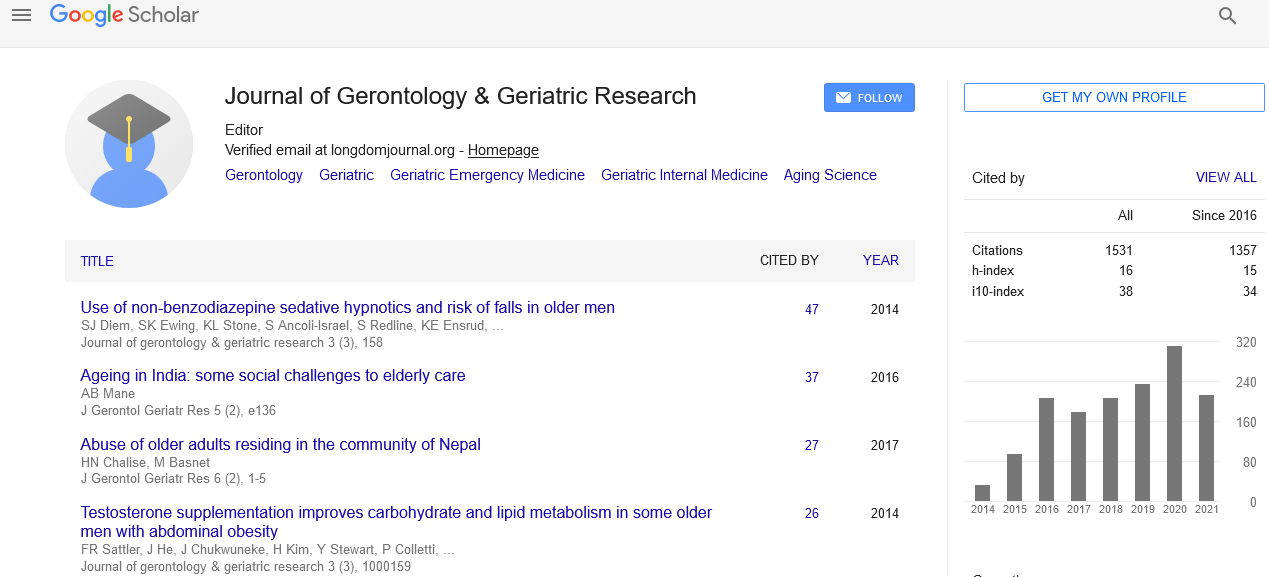PMC/PubMed Indexed Articles
Indexed In
- Open J Gate
- Genamics JournalSeek
- SafetyLit
- RefSeek
- Hamdard University
- EBSCO A-Z
- OCLC- WorldCat
- Publons
- Geneva Foundation for Medical Education and Research
- Euro Pub
- Google Scholar
Useful Links
Share This Page
Journal Flyer

Open Access Journals
- Agri and Aquaculture
- Biochemistry
- Bioinformatics & Systems Biology
- Business & Management
- Chemistry
- Clinical Sciences
- Engineering
- Food & Nutrition
- General Science
- Genetics & Molecular Biology
- Immunology & Microbiology
- Medical Sciences
- Neuroscience & Psychology
- Nursing & Health Care
- Pharmaceutical Sciences
Abstract
How Intensive are Patients’ Behavior in Cost-Related Medication Non- Adherence?
James X Zhang
The cost barrier to medications is a persistent and serious problem among the U.S. elderly population. Twenty-six percent of the elderly do not take medication as prescribed due to a cost barrier [1]. This is not surprising as many elderly patients depend on a small amount of fixed income from social security and struggle on a day-to-day basis to make difficult choices between meeting the basic needs of daily life and filling prescriptions. The Medicare Part D program, a subsidized drug program, aims to significantly improve access to outpatient prescription drug benefits for millions of elderly Americans [2]. While overall utilization increased after the institution of Part D, [3] costrelated medication non-adherence (CRN) has not deceased or has even worsened among the sickest patients, including those with multiple chronic conditions, depression, and stroke survivors [4-6].


